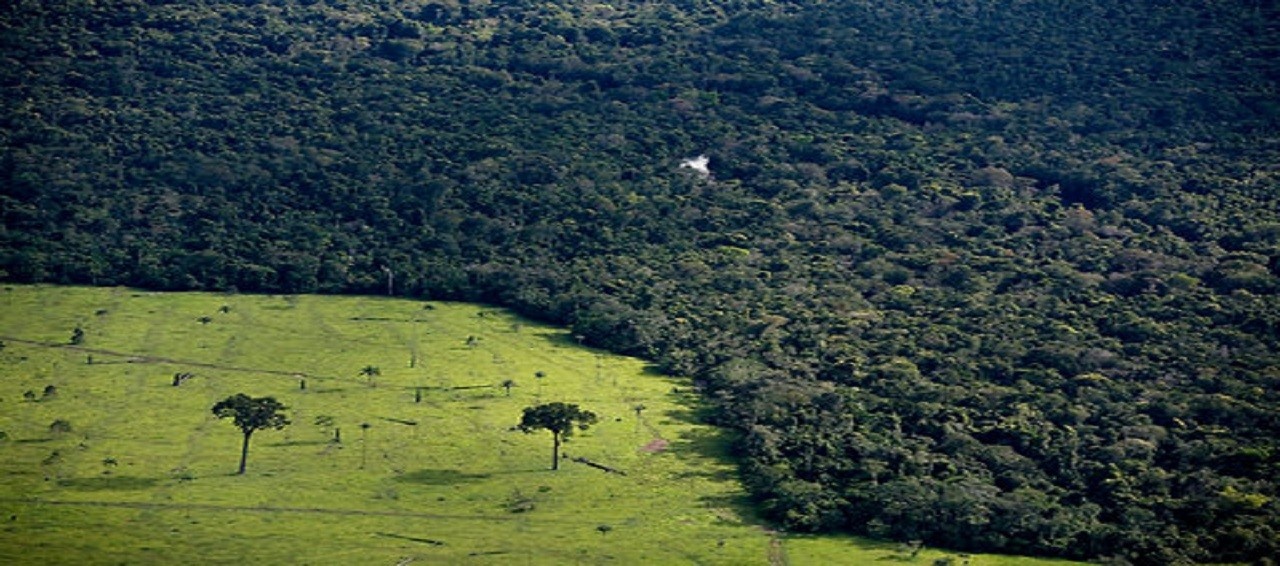John D. Cameron
Professor, Graduate Coordinator

Email: john.cameron@dal.ca
Phone: 902-494-7011
Mailing Address:
Marion McCain Building
6135 University Ave.
–¬įń√ŇŃýļŌ≤
PO Box 15000
Halifax, NS, Canada
B3H 4R2
Office location:
Marion McCain Building 2171 ,
- Advocacy strategies of Civil Society Organizations
- Public Engagement strategies and representations of ‚Äėdevelopment‚Äô in the global North
- Cosmopolitan theory and global citizenship
- Indigenous and peasant social movement
- Andean politics (Bolivia, Ecuador, Peru)
- Rural development policies
Education
- B.A (Univ. of King’s College and Dalhousie)
- M.A. (Simon Fraser)
- PhD (York)
Website:
Teaching in 2017-18
INTD / CANA 1103 Halifax and the World (Part II):
This course offers an introduction to both International Development Studies and Canadian Studies by exploring the connections between important global issues and the daily lives of students in Halifax. As you walk across the Dalhousie campus and go about daily life in Halifax, your actions connect you to people around the globe and to the history of the city and world as well as to the many works of literature, art and music that depict these connections. Here are just a few examples of connections that we will explore:
‚Ė™ walking across the Dalhousie campus you are traversing unceded Mi‚Äôkmaq territory
‚Ė™ your morning coffee connects you to the peasant farmers in Africa and Latin America who produced the coffee beans
‚Ė™ a cell phone call connects you to Child Soldiers in the Democratic Republic of Congo, where the coltan used in making cell phones is mined and fought over ‚Äď and to Guiyung, China ‚Äď the world‚Äôs largest electronic waste site.
The course is organized into three parts. Part I examines the global commodity chains that connect us as consumers and citizens to the people who produce the products and services that we use ‚Äď and the ways in which our roles as consumers and citizens in Canada connects us to social, political, economic and environmental challenges around the world. Part II examines the ethical issues related to our roles as consumers and citizens ‚Äď drawing on the insights of important moral philosophers and connecting them to our everyday lives. Part III shifts the focus to concrete action: strategies to engage others with the issues we have learned about in parts I and II.
The course involves extensive ‚Äėhand-on‚Äô real-world learning through exploration and analysis of global connections in the city of Halifax, guest speakers, action assignments and public engagement (e-based and in person).Őż
INTD 3002 Development in Practice
This course is designed to help students develop the professional skills and knowledge needed to work in the international development sector and many other related professional fields. Core skills that will be prioritized in the course include writing project funding proposals, financial management, project management, monitoring and evaluation of projects, writing policy briefs and other professional communication skills. The course will begin with an overview of the international development ‚Äėindustry‚Äô in Canada and the professional skills required for working in it. Over the semester, students will develop professional skills while working in groups on an international development project proposal, following the guidelines of Global Affairs Canada.
Other recent teaching
INTD 4002 / 5000 ‚ÄėRepresenting Development in Images, Video, and Text: Critical Debates and Alternative Strategies‚Äô
The ways in which global development and poverty are represented to the general public in the global North matters. The forms of representation used by governments, NGOs, advertisers, the news media and cultural producers shape the ways in which the general public understands and acts upon global development and poverty. This seminar focuses on the ways in which issues of global poverty and development are represented to mainstream publics in the North through images, video and text. It is through the representation of poverty and development that relationships between individuals and communities in the North and South are mediated and produced, in turn sustaining (and occasionally challenging) prevailing global political and economic power relations. In short, how we think about development issues and what we do about them are both heavily shaped by the ways in which those issues are represented to us by development organizations and the media. The course begins with an introduction to theoretical and ethical perspectives on representation and then examines a series of case studies of initiatives to represent development using methodological tools introduced throughout the course.
INTD 4011 / 5003 ‚ÄėGlobal Citizenship in Theory & Practice‚Äô
The question of global citizenship lies at the core of what International Development Studies is all about: critically examining causes of global poverty, inequality and injustice ‚Äď and the ethical obligations which these issues pose for all human beings. Questions about our ethical obligations to other human beings ‚Äď especially those who are very poor and very far away ‚Äď have persisted in debates among philosophers and ordinary people for centuries. The idea of global citizenship ‚Äď also often referred to as cosmopolitanism ‚Äď dates back to ancient Greece and has been an ongoing focus of debate since then. At its core are a series of fundamental questions that have particular importance in the context of the challenges of the twenty-first century ‚Äď such as economic globalization and climate change: What basic rights do all human beings possess? What ethical obligations do those rights imply for other humans? What specific actions do those ethical obligations require us to undertake? This course examines both the ethical obligations which global citizenship suggests and the ways in which people might fulfil those obligations in practice.
Research
Indigenous Rights to Self-Governance in Bolivia
This long-term research project analyses struggles by Indigenous peoples in Bolivia to exercise the right to self-governance or autonomy ‚Äď and the responses of the Bolivian state to those struggles. The project has been supported with research grants from SSHRC and the IDRC and has been carried out in very close collaboration with the Bolivian NGO Fundaci√≥n Tierra. (). See publications below and on my website:
International Development NGOs inŐżCanada
This research project focuses on the work that international development NGOs do in Canada. This under-researched aspect of NGO work includes data collection and critical analysis of political advocacy and government relations in Canada, public education and engagement work in Canada, fundraising and communications. Working in collaboration with Canadian NGOs, this project examines the changing global and domestic context for international development NGOs in Canada, NGO strategies to adapt to the changing context, and the impacts of NGO strategies on government and corporate policies and the engagement of Canadians with global issues. See publications below and on my website:
Representations of Global Development and Poverty
This research project examines the ways in which NGOs, aid agencies and the media represent issues of global development and poverty to the general public in Canada and other countries of the global North. The project involves critical analysis of contemporary strategies of representation, such as sex and humour (see publications below) and also involves collaborative research with Canadian NGOs and the provincial councils of international cooperation to reflect upon and strengthen strategies to engage the Canadian public more effectively (and ethically) with issues of global development and poverty.
Career Paths of IDS Students inŐżCanada
In collaboration with my colleague Dr. Rebecca Tiessen (University of Ottawa) and with funding from Canada’s International Development Research Centre (IDRC), this project examines the career paths of over 1,900 graduates from 14 IDS programs in Canada, from the first cohort of IDS graduates in 1981 to 2016. To learn more about this research check out the project website:
Selected publications
*Please contact me if you cannot access any of these publications.
John Cameron. Forthcoming in 2017. ‚ÄúCommunicating Cosmopolitanism and Motivating Global Citizenship‚ÄĚ Political Studies.Őż
With Wilfredo Plata. 2017. ‚Äú¬ŅQui√©nes dicen no a las autonom√≠as ind√≠genas y por qu√©?: pragmatismo, hibridez y modernidades alternativas en la base‚ÄĚ Cuestion Agraria No. 3 (Bolivia)
Őż
With Rebecca Tiessen. 2017. The Career Paths of IDS Students in Canada (Report for the Canadian Association for the Study of International Development and the Canadian Consortium of College and University Programs in International Development Studies)
Őż
John Cameron. 2016. ‚ÄúRethinking Thinking about Canadian Aid from a Cosmopolitan Perspective‚ÄĚ in Stephen Brown, David Black, Molly Den Heyer, eds. Rethinking Canadian Aid. University of Ottawa Press, 55-70.
Őż
John Cameron. 2015. ‚ÄúCan Poverty be Funny? The Serious Use of Humour as a Strategy of Public Engagement for Global Justice‚ÄĚ Third World Quarterly 36, 2: 274-290.
Őż
John Cameron. 2015. ‚ÄúAuto-gouvernance autochtone dans les Andes : les contradictions des institutions politiques hybrides‚ÄĚ in Nancy Thede, ed. Hybridit√© et r√©sistances : Trajectoires inattendues de la d√©mocratie locale. ŐżParisŐż: Editions Karthala, pp 223-273.
Őż
Jason Tockman, John Cameron and Wilfredo Plata. 2015. ‚ÄúNew Institutions of Indigenous Self-Governance in Bolivia: Between Autonomy and Self-Discipline‚ÄĚ Latin American and Caribbean Ethnic Studies (Special Issue on Indigenous Peoples and Autonomy in Latin America) 10, 1: 37-59.
Őż
Jason Tockman and John Cameron. 2014. ‚ÄúIndigenous Autonomy and the Contradictions of Plurinationalism in Bolivia‚ÄĚ Latin American Politics and Society 56, 3: 46-69.
John Cameron.Őż 2014. ‚ÄúGrounding Experiential Learning in ‚ÄėThick‚Äô Conceptions of Global Citizenship‚ÄĚ in Rebecca Tiessen and Bob Huish, eds. Globetrotting or Global CitizenshipŐż: Perils and Potentials of International Experiential Learning. TorontoŐż: University of Toronto Press, 21-42.Őżhttp://www.utppublishing.com/Globetrotting-or-Global-Citizenship-Perils-and-Potential-of-International-Experiential-Learning.html
John Cameron. 2013. ‚ÄúBolivia‚Äôs Contentious Politics of ‚ÄėNormas y Procedimientos Propios‚Äô‚ÄĚ Latin American and Caribbean Ethnic Studies 8, 2: 179-201.
John Cameron, Fahimul Quadir and Rebecca Tiessen. 2013. ‚ÄúA Changing Landscape for Teaching and Learning in International Development Studies: An Introduction to the Special Issue‚ÄĚ Canadian Journal of Development Studies 34, 3: 349-363.
Gonzalo Colque and John Cameron. 2010. ‚ÄúEl dif√≠cil matrimonio entre la democracia liberal e ind√≠gena en Jes√ļs de Machaca‚ÄĚ in Juan Pablo Chumacero, ed. Reconfigurando territorio: Reforma Agraria, control territorial y gobiernos ind√≠genas en Bolivia. La Paz, Bolivia: Fundaci√≥n Tierra, pp 173-208.
John Cameron. 2009. Struggles for Local Democracy in the Andes. Boulder, CO: Lynne Rienner / First Forum Press (382 pages).
John Cameron. 2009. ‚ÄúDevelopment is a Bag of Cement: The Infrapolitics of Participatory Budgeting in the Rural Andes‚ÄĚ Development in Practice 19, 6: 692-701.
John Cameron. 2009. ‚ÄúHac√≠a la Alcaldia: The Municipalization of Peasant Politics in the Andes‚ÄĚ Latin American Perspectives 36, 4: 64-82.
John Cameron and Anna Haanstra. 2008. ‚ÄúDevelopment Made Sexy: How it Happened and What it Means‚ÄĚ Third World Quarterly 29, 8: 1475-1489.
Liisa North and John Cameron, eds. 2003. Rural Progress, Rural Decay: Neoliberal Adjustment Policies and Local Initiatives in Latin America. Bloomfield, Connecticut: Kumarian Press.
Őż
